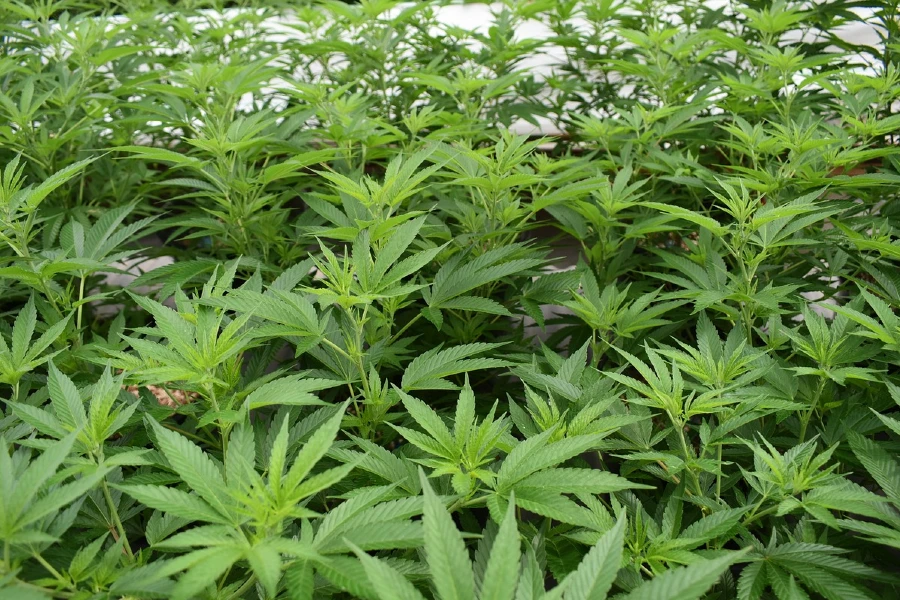The impact of cannabis on obesity is a complex and ever-evolving subject of research. Data indicates that cannabis may have contradictory effects on weight. Some studies show that marijuana can lead to weight increase, while others claim it may assist in weight loss. Overall, research indicates that cannabis may have a paradoxical impact on weight.
Potential factors contributing to weight increase include the following:
Cannabis is widely recognized to have a diverse range of effects on the human body, with some being advantageous and others being harmful. Patients commonly report elevated hunger as one of the primary adverse effects of cannabis use. Hence, cannabinoids, which stimulate hunger by engaging with the body’s endocannabinoid system, are accountable for this event.
While this approach may benefit individuals with eating disorders or medical conditions causing reduced appetite, it can provide challenges for those striving to maintain a healthy weight or lose weight.
Consuming cannabis can lead to heightened appetite, potentially leading to an increased caloric intake and ultimately contributing to weight gain. This is remarkably accurate when the individual is under the influence of cannabis and consuming meals that are both high in calories and detrimental when combined with marijuana.
The body cannot operate with its usual efficiency in metabolizing and utilizing stored fat for energy.
It is important to note that different strains of cannabis might have distinct effects on hunger levels. Additionally, the specific type of cannabis consumed can also contribute to an increase in appetite.
Cannabis smoking has been linked to impaired fat metabolism, as well as the potential for increased calorie consumption and the chance of increased calorie intake. According to specific research findings, cannabis may impede the body’s capacity to metabolize fat, perhaps leading to an increase in weight. This is because the body cannot operate with its usual efficiency in metabolizing and utilizing stored fat for energy.
While further research is necessary to comprehend the impact of cannabis on weight gain fully, it is crucial for cannabis users to be mindful of the potential risks and to make informed decisions about their usage habits using reliable information.
The consumption of cannabis can potentially have negative consequences on weight management; however, these implications can be minimized by following a nutritious diet and regularly participating in physical exercise.
Possible mechanisms underlying weight loss:
Cannabis may decrease the desire for bad food, reducing calorie intake and resulting in weight loss.
Several studies have shown that cannabis use can result in heightened physical activity, perhaps leading to weight loss.
Current studies have found that cannabis, a plant with a long history of therapeutic use, potentially offers substantial advantages in enhancing insulin sensitivity. Insulin, a hormone produced by the pancreas, regulates blood glucose levels. Insulin sensitivity measures how effectively the body responds to insulin and utilizes it to regulate blood sugar levels.
Studies have shown that cannabis may positively impact insulin sensitivity, which can be significant for managing weight. Enhanced insulin sensitivity enables the body to efficiently utilize glucose, reducing the risk of developing type 2 diabetes. Furthermore, improved insulin sensitivity can lead to enhanced weight control. This occurs due to the accumulation of surplus glucose in the bloodstream, which can be converted into fatty tissue if not utilized for metabolic purposes.
Research has identified certain cannabinoids
Cannabis includes cannabinoids, which can interact with the endocannabinoid system of the body. This system is responsible for regulating appetite, metabolism, and glucose metabolism, among other functions. Research has identified certain cannabinoids, such as tetrahydrocannabinol (THC) and cannabidiol (CBD), as having the potential to improve insulin sensitivity.
A study published in the American Journal of Medicine revealed that adults who had consumed cannabis had reduced levels of insulin during fasting and had a lesser likelihood of developing insulin resistance compared to individuals who had abstained from cannabis usage. Another study published in the Journal of Diabetes Research discovered that THC enhanced insulin sensitivity in obese mice.
Nevertheless, it is crucial to underscore the necessity for further investigation to obtain a thorough comprehension of the impact that cannabis has on insulin sensitivity and weight management. The use of cannabis is linked to various potential adverse effects, such as diminished cognitive ability and addiction, among other possible outcomes. Therefore, it is crucial to seek advice from a medical professional before using cannabis for medicinal reasons.
Weight management and the mitigation of the risk of acquiring type 2 diabetes
To summarize, it is plausible that cannabis may offer benefits in improving insulin sensitivity. The enhanced insulin sensitivity could have significant implications for weight management and the mitigation of the risk of acquiring type 2 diabetes. However, further investigation is necessary to understand the impact of cannabis on insulin sensitivity thoroughly and to determine appropriate and efficient dosages for medical use.
Conflicting findings generally characterize the existing research on the impact of cannabis on obesity. Further investigation is required to ascertain the veracity of the effects that cannabis has on body weight.
Additional factors to consider are as follows:
The effects of cannabis on weight can vary among individuals. The impact of these impacts can differ among individuals.
Moreover, the impact of cannabis on body weight may also be contingent upon the dosage administered.
Administration route: The method by which cannabis is eaten might potentially impact its potential for causing weight gain.
If you are considering using cannabis for weight management, you must visit your physician beforehand. With their guidance, you will be able to assess and weigh the potential risks and benefits of cannabis use and reach a well-informed and suitable conclusion.




